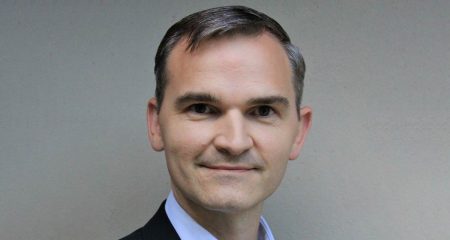
For years, the development of full artificial intelligence has been the brass ring of computer science. So many of our machines already “think” for themselves in terms of repetitive duties based on human programming, of course. But when the day comes when computers can actually interpret our emotions, or get the punch line about the chicken and the road without our help, we’ll know the future has truly arrived. Mark it down: the future arrives in 2045. Read more…
How an Apple security expert ‘bricked’ his brand new Jeep
In addition to Apple devices, noted security expert and The Mac Hacker’s Handbook co-author Charlie Miller has carried out some fascinating (and potentially terrifying) research into hacking vehicles. Last year, alongside fellow hacker Chris Valasek, Miller demonstrated that it is possible to hijack the steering and brakes of a Ford Escape and Toyota Prius using only a laptop connected to the car. Having done that, he has now moved onto exploring vulnerabilities in other vehicles — including his new 2014 Cherokee jeep. All that research comes at a high price, however, since Miller recently revealed on Twitter that he has managed to “brick” his vehicle, after hacking the head unit. Read more…
Hiring hackers to secure the Internet of things
The first security vulnerability Michael Murray ever reported to Bugtraq was memorable in the way he found it. Back in 2000, the former security researcher discovered a flaw in a function in the Linux kernel after banging his hand on the keyboard in frustration when he couldn’t get his telnet session to disconnect. Striking random keys ultimately crashed the session and exposed the bug. “That one was silly,” he says of his unorthodox and inadvertent discovery method. Read more…
Google partners on genomic database on autism
Google and Autism Speaks have collaborated to launch Mssng, an awareness campaign to support the development of the world’s largest genomic database on autism. By sequencing the DNA of more than 10 000 people with autism spectrum disorder and their families, Mssng aims to answer many of the questions about the disorder that still remain unknown. Read more…
The huge, unseen operation behind the accuracy of Google Maps
The maps we use to navigate have come a long way in a short time. Since the 1990s, we’ve gone from glove boxes stuffed with paper maps to floorboards littered with Mapquest printouts to mindlessly obeying Siri or her nameless Google counterpart. The maps behind those voices are packed with far more data than most people realise. On a recent visit to Mountain View, I got a peek at how the Google Maps team assembles their maps and refines them with a combination of algorithms and meticulous manual labour — an effort they call Ground Truth. The project was launched in 2008, but it was mostly kept under wraps until just a couple years ago. It continues to grow, now covering 51 countries, and algorithms are playing a bigger role in extracting information from satellite, aerial and Street View imagery. Read more…
You can take down Pirate Bay, but you can’t kill the Internet it created
In the late hours of Tuesday night, the Pirate Bay abruptly disappeared from the Internet, the result of a surprise raid on the site’s servers by Swedish police in Stockholm. But forget the big-picture questions of Internet freedom or intellectual property. The real problem, for millions of Internet users, is how am I going to watch TV? Read more…
TV is over: mobile is demoting it to the status of newspapers
About 26% of customers who call US cable TV companies request “Internet only” service, according to a survey of those calls by mobile advertising technology company Marchex. Of those customers, at least 60% actually end up getting Internet-only service, Marchex says. The survey results — which came from 500 random phone calls via Marchex’s Call Analytics customer phone call monitoring technology — show that people increasingly don’t want to pay for old-fashioned TV. Read more…
The golden quarter
We live in a golden age of technological, medical, scientific and social progress. Look at our computers! Look at our phones! Twenty years ago, the Internet was a creaky machine for geeks. Now we can’t imagine life without it. We are on the verge of medical breakthroughs that would have seemed like magic only half a century ago: cloned organs, stem-cell therapies to repair our very DNA. Even now, life expectancy in some rich countries is improving by five hours a day. A day! Surely immortality, or something very like it, is just around the corner. Read more…
Open Garden’s hard sell: a world of shared radios
On the evening of 28 September, Open Garden co-founder and CEO Micha Benoliel was on Skype call in a hotel room in Hong Kong complaining to his CMO Christophe Daligault that their new app FireChat wasn’t getting any traction in Hong Kong. One of the key features of the messaging app is its ability to create direct peer-to-peer links between nearby phones using Bluetooth and Wi-Fi. Protesters could use FireChat to communicate and coordinate even if mobile networks got congested or went down completely, and the next few days were a whirlwind for Open Garden. Read more…
A brief history of Linux malware
Although not as common as malware targeting Windows or even OS X, security threats to Linux have become both more numerous and more severe in recent years. There are a couple of reasons for that — the mobile explosion has meant that Android (which is Linux-based) is among the most attractive targets for malicious hackers, and the use of Linux as a server operating system for and in the data centre has also grown — but Linux malware has been around in some form since well before the turn of the century. Read more…




